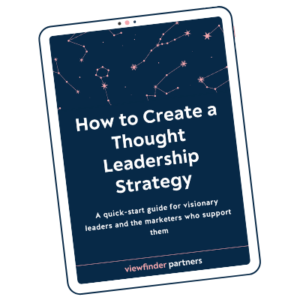You know the saying “What got us here won’t get us there”?
I’ve been thinking about that in terms of the words we use to talk about our work.
Most of my work is about ✨✨✨ the future ✨✨✨ (of work, of business, of industries and communities).
And when you’re trying to spread new ideas about a different way of doing things in the future, you can’t use the vocabulary, paradigms and accepted principles of the past.
Here’s what sparked this line of thinking for me.
I was talking to a group of women about the future of work — specifically, how to rethink working hours and calendars to align better with parents’ schedules and responsibilities. We were talking about the calm and relief it would bring us as business owners.
And in this group of smart, dynamic, future-focused, entrepreneurial women, I realized that we were using old-school justifications about how and why this could work. We were talking about the benefits to the business. To the bottom line. To employee satisfaction and retention.
We were parroting lines that have become so ubiquitous that they’re just static now: “Taking care of your people is good for business.”
This is the justification that today’s leaders use for any kind of positive change for workers — paid parental leave, mental health support, vacation time, even diversity and inclusion. They’re all presented as valuable and worthy because they will eventually improve the business’ bottom line.
And if you think about that, isn’t that incredibly sad? That we have to tiptoe around building better work cultures and pinky-promise that it won’t make anyone lose a dime — and that it will actually make the company more money? I don’t want to validate the idea of treating people well by saying that it’s “good for the bottom line.” And I don’t want to justify taking time off by promising that I’ll be more productive after my vacation. I just want to take time off.
Y’all. We gotta build a different way to talk about this.
I realized that if we’re talking about big change, we need to make a big change in our vocabularies. We need a complete shift in the storyline. We need new paradigms and value structures, and we need to stop parroting these old justifications.
And, it’s important to realize that if you work in leadership, communications, or marketing, you have agency to create this change. You have the power and influence to talk differently about your work, starting today.
So instead of “taking care of yourself and your people is good for business,” what if we say “taking care of yourself and your people is good”?
If we’re developing a new vision for business, we need new metrics to define success. And new ways to talk about our vision that don’t rely on old rules that no longer serve us.
I’m curious: Are you subconsciously relying on old paradigms or outdated ways of thinking in your writing? What phrases could you cut out to make your message stronger, more hopeful, or more aligned with the vision you’re working toward?


![what is a thought leader [paint palette image]](https://viewfinderpartners.com/wp-content/uploads/2019/11/im-not-a-thought-leader-1-300x200.jpg)




